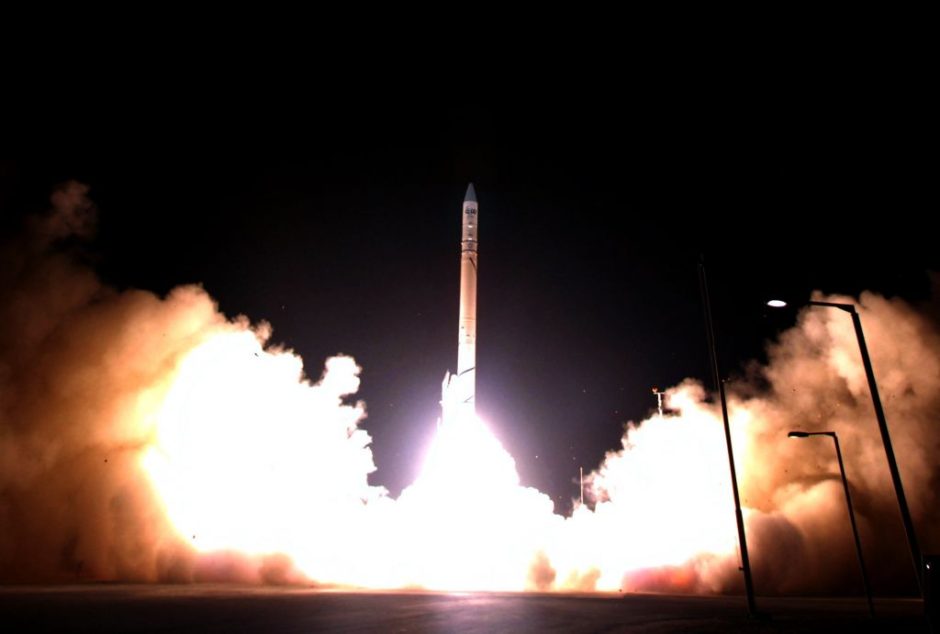Israel has come a long way from the tenuous days when it was habitually short of weapons to defend its vulnerable borders. And while Israel is still dependent on the United States, its chief ally, for its supply of state-of-the-art fighter jets, transport planes and helicopters, the Israeli arms industry has grown tremendously in the past few decades. Indeed, as the British military trade magazine Jane’s has pointed out, Israel is now one of the world’s top six arms exporters, selling its wares to a large number of countries ranging from China and Brazil to Germany and Nigeria.
Since 2007, Israel has exported about $6.5 billion annually in weaponry, representing about 10 percent of its overall exports.
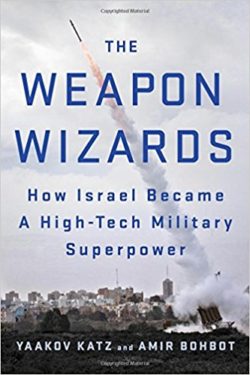
From missile defence systems to drones, Israel is a world leader in the lucrative field of military technology. So much so that it is changing the face of warfare in the Middle East and around the globe, say Yaakov Katz and Amir Bohbot in their highly informative book, The Weapon Wizards: How Israel Became A High-Tech Military Superpower, published by St. Martin’s Press.
Israel’s ongoing quest for survival in a very tough neighborhood forced it into this direction, observe Katz, the editor-in-chief of the Jerusalem Post, and Bohbot, the military editor of Walla, a leading Israeli news website.
It was not easy for Israel to build a first-rate arms industry. Who could have imagined in 1948 that a new nation, bereft of natural resources and poised to absorb a flood of newcomers, could establish and maintain first-rate research, development and production capabilities?
The secret of Israel’s success was its human capital, according to the authors. Israel had it in abundance and harnessed its energy.
The country’s first defence company, state-owned Israel Military Industries, is today a global behemoth, developing and manufacturing missiles, rockets and armor. Israel Aerospace Industries, founded by the American immigrant Al Schwimmer with support from Shimon Peres, the director-general of the ministry of defence, went from repairing to producing aircraft.

One of Israel’s greatest military products, the short-range Iron Dome rocket-defence system, which was developed in cooperation with the United States, has proved itself in two Gaza wars. As Katz and Bohbot write, it “helped Israel turn a strategic threat — rocket fire from the Gaza Strip — into a manageable tactical problem.”
Described by them as a “game changer,” Iron Dome has achieved a 90 percent interception rate. Thanks to Iron Dome, the Israeli army did not have to send ground troops into Gaza in the 2012 war. Nor did Israel have to launch an all-out invasion of Gaza during the 2014 war.
Israel has also developed the Arrow, a long-range rocket defence missile. And now Israel is working on David’s Sling, which is designed to intercept rockets too big for Iron Dome but not big enough to be intercepted by the Arrow.
The launch of the Ofek-1 in 1988 turned Israel into a satellite superpower. With the launch of the Ofek-10 three years ago, Israel now has seven spy satellites in space. They can focus on strategic targets too distant for reconnaissance flights by spy planes and drones.
Since 1985, Israel has been the world’s largest exporters of drones. Customers include the United States, Russia, Germany and South Korea. Israeli drones, such as Heron and the Hermes, were originally built for intelligence, surveillance and reconnaissance missions. But after the eruption of the second Palestinian uprising in 2000, they were fitted with missiles and sent aloft to attack Hamas and Islamic Jihad bases and operatives in Gaza.
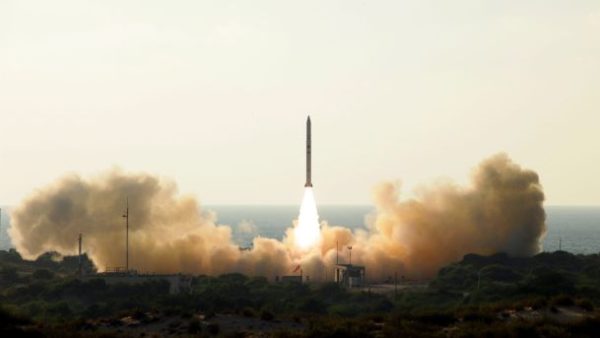
Katz and Bohbot speculate that, in the next few years, the Israeli Air Force will phase out its F-15s and F-16s as it morphes into a force consisting almost entirely of drones, “some of them small enough to fit into your pocket.” By 2030, they predict, the air force will have whittled down its fleet of planes to drones and stealth fighter jets.
Sometimes, the development of Israeli military products has been due to political considerations. A case in point is the Merkava tank. In the late 1960s, Israel ordered Chieftain tanks from Britain, but the British government reneged on the sale out of fear of antagonizing the Arabs. An Israeli general, Israel Tal, was commissioned to develop a homegrown version of the Chieftain. And so the Merkava was born.
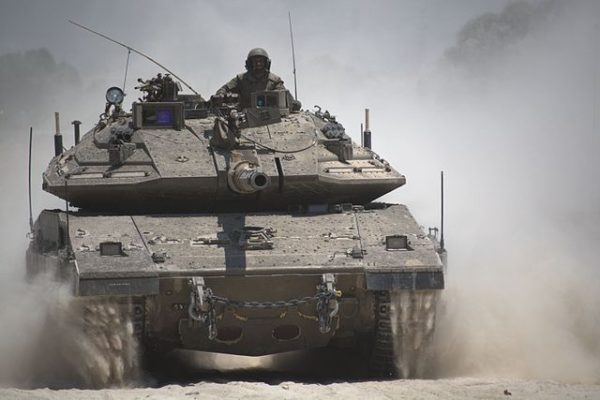
Israel also has been in the forefront of the smart bomb revolution. During the 2014 Gaza war, Israeli aircraft fired more than 5,000 missiles. “Over 81 percent of them were smart bombs, an unprecedented percentage in modern warfare,” write Katz and Bohbot. “In comparison, during the beginning of the Iraq War in 2003, coalition forces used smart bombs 68 percent of the time, and during the Kosovo War of 1999, the percentage was a mere 35 percent.”

As they note, cyber warfare is one of Israel’s strengths. Stuxnet, a computer virus created by Israel and the United States during Barack Obama’s presidency, caused engines in Iran’s centrifuges to break down.
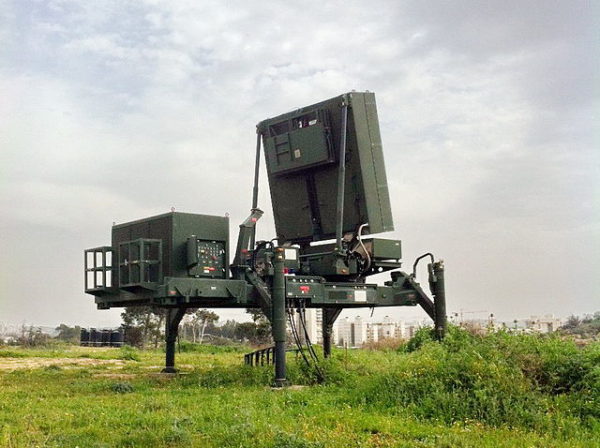
Israel, too, has developed a sophisticated electronic warfare system that can trick enemy air defence batteries. It was used successfully when Israeli aircraft destroyed Syria’s nuclear reactor in September 2007.
Peering into the future, Katz and Bohbot claim that robots and unmanned tanks and patrol ships will be sent into combat. “Precision rockets will strike predesignated targets, leaving the air force’s stealth fighter jets for longer range, strategic missions,” they add.
In a chapter titled Diplomatic Arms, they explain that Israel established diplomatic ties with several countries, including China, India and Singapore, after forging military relations with them.
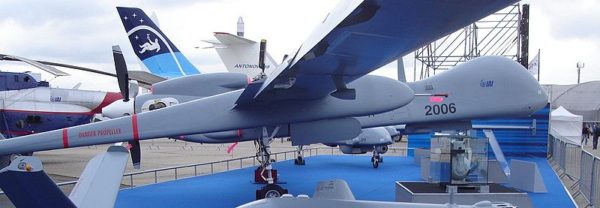
Israel’s relationship with one of its best customers in Asia, Myanmar, formerly known as Burma, was formed through this method as well. Of late, Israel has been taking flak for selling weapons to Myanmar. Although the United Nations has accused Myanmar’s army of carrying out “a textbook example of ethnic cleansing” of its Rohingya Muslim minority, Israel continues to sell arms to that nation. As the Israeli daily Haaretz has commented, “Israel is doing so despite the fact that the European Union and the United States have both banned arms sales to Myanmar, making it the only Western nation supplying Myanmar with weapons.”
The arms trade, while very profitable, can tarnish a country’s image.
